#haitian music
Text
youtube
Eya hé Rara by Wesli, live on KEXP
#music#haitian music#wesli#wesley louissaint#martine labbé#andré désilets#david mobio#michel medrano brindis#watson joseph#cindy belotte#video#kexp#live on kexp#live sessions#Youtube
17 notes
·
View notes
Text
316: Toto Bissainthe // Chante Haïti

Chante Haïti
Toto Bissainthe
1977, Arion
“These songs are mostly slave songs taken from the Vodou cult. They speak of the quotidian, of the suffering of exile, and the desire of Africa, not as a geographical place but as a mythical land of freedom. They express their resistance and their refusal: resistance to the colonizer, refusal of his politics, of his religion, of his culture, of his language.”
So begins Toto Bissainthe’s statement on the rear of Chante Haïti, her 1977 collaboration with a small combo of Antillean folk and French jazz musicians: vocalists Marie-Claude Benoît and Mariann Mathéus; percussionists Akonio Dolo and Mino Cinélu (Miles Davis, Weather Report, Gong); Patrice Cinélu on acoustic guitar; and Beb Guérin on the double bass. The songs indeed fuse the Vodou ritual of her native Haiti with the European avant garde sounds of her adopted milieu of Paris, where she had moved to pursue acting and found herself a de facto exile due to the political situation back home. Bissainthe had become a prominent figure in the French theatre, performing in new plays by Beckett and Genet and co-founding Les Griots, France’s first Black theatre company; by the late ‘70s, she was an acclaimed recording artist to boot. Her accomplishments made her a prominent figure in the Haitian diaspora and her activist streak is apparent throughout Chante Haïti, explicitly linking the grief and yearning for liberation in these traditional ceremonials with the country’s contemporary struggles.
Like many songs on the album, the Creole words of opener “Soley danmbalab” mourn the people's estrangement from Mother Africa, a crossing which can neither be reversed or repeated. It begins like a field recording, Bissainthe’s soulful, Miriam Makeba-esque voice set to a chorus of rattles and bells and gurgling masculine whispers. As the song develops, her melody wends like a stream through the dense jungle of percussion, dissonant bass, and counterpoint chanting. Eventually, Mino Cinélu’s arrangement becomes more free, the male chorus imploring the Oungan (a male Vodou priest) to intercede with the creator on the people’s behalf as the tune breaks down into an increasingly abstract bass and drum interplay, while the three female singers exchange birdlike vocal improvisations.
youtube
“Ibo Ogoun (Variations)” is even wilder, evoking a trance ritual, the spirits speaking in many tongues through the celebrants as they seek to summon Ogun, God of Iron and War, to lead the battle of liberation. One of the male percussionists times his tanbou beat so that it hits just as he sings certain notes, creating the illusion that he voice has suddenly lurched down an octave for a moment, almost like a DJ freaking a vocal sample. Bissainthe, Mathéus, and Benoît match the intense drumming with some crazy syncopations, sometimes talking, sometimes hissing and whispering, sometimes wailing and ululating.
Most of the album takes on a more meditative tact, anchored by Guérin’s plangent double bass. On the smoky “Papadanbalab,” an entreaty to the serpent creator Damballa to bear witness to the penury of his people, Bissainthe sways over a slinky jazz bass line, Patrice Cinélu adding mellow acoustic fusion licks. The song seems like a brief stopover in a Parisian club. But even the less overtly intense tracks pack plenty of musical interest. “Lamize pa dous” has this hypnotic rhythm that sounds exactly like a micro house beat—in fact, the first thing it made me think of was Ricardo Villalobos’ Alcachofa, or Animal Collective at their campfire ravingest. The song is about the moment of surrender to death, the winnowing of time represented by water encroaching on all sides, the realization too late that “we spend our lives trying to fill the sea with stones.”
Listening to a record like this, especially in light of Bissainthe’s note on the back excoriating the colonialist ethnographer who reduces Haitian folklore to “excitement and violence,” requires at least a smidgen of awareness from the white listener that Chante Haïti is not intended for them. The traditions it engages with are of deep spiritual significance to many Haitians, both in the ‘70s and today. But for those inside and outside the culture who are willing to approach it with respect, Chante Haïti is a fascinating fusion of Antillean and European musics, and a peek into a profound and secret history.
youtube
316/365
#toto bissainthe#haiti#haitian music#vodou#haitian vodou#vodou music#diaspora#spiritual jazz#Kréyol djaz#creole#'70s music#female singer#female musicians#protest music#music review#vinyl record
5 notes
·
View notes
Text
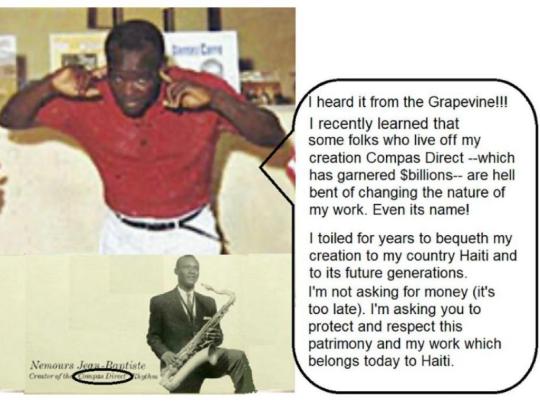

Compas Direct - pronounced CON'PA (Konpa)
📽 Ministre de la Culture (Haiti)
Haitian "Konpa" is properly written as "COMPAS DIRECT" and not "KOMPA." 😏
Please apologize for any confusion caused by the incorrect term and spread the word. 😄

No one would accept Soka, Salssah or Ragey, so why can't Haitians teach the world how to get it right?
Just as terms like "Soca," "Salsa," and "Reggae" are universally recognized and pronounced correctly, Haitians have the opportunity to share their cultural heritage and teach the world how to pronounce "Compas Direct" accurately. By embracing and promoting their music and culture, Haitians can play a crucial role in ensuring that their traditions are respected and understood globally.
Even if writing it properly is too difficult for you, you can at least write it in proper Haitian Kreyol.
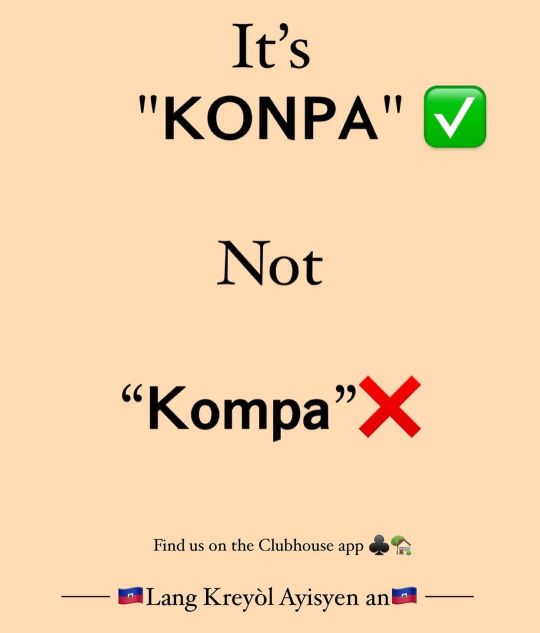

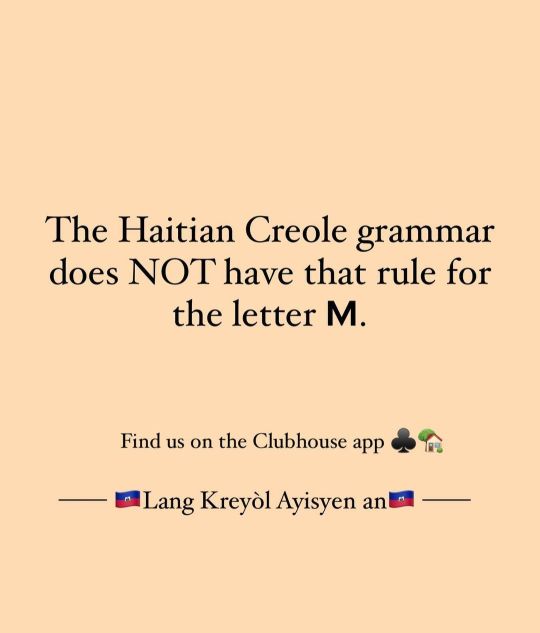
Just imagine what it would feel like to accept a diploma or an award, only to find out that your name is spelled incorrectly on it. Then, imagine the institution dismissing it with a casual "oops, too bad, close enough!" Would that be acceptable to you? Would you still want to proudly display it despite the mistake?
No, it wouldn't be okay to accept a diploma or an award with an incorrectly spelled name. It's important to have accurate and properly spelled information on such documents. Displaying an incorrectly spelled name may not accurately represent your achievements and could lead to confusion or misunderstandings.

_________
We can compromise.
Compas Direct (Formally ) Compas, Compas love, Compas Y2K, Compas 2000, World Beat Compas, etc or
Konpa Dirèk, or Konpa when speaking Kreyòl
But let's leave "Kompa" for Kompa Magazine. Respectfully 💙❤🙏🏼
Sandra Gabriel lmt
Not 100dra Gabriyel
#Haitilegends

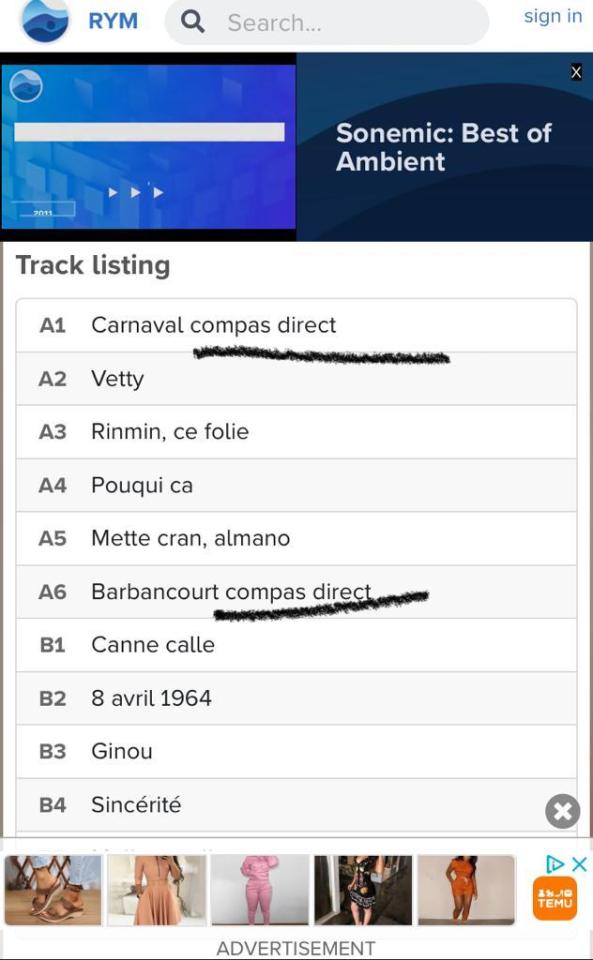

_______
#compas direct#konpa#kompas#kompa#haitian music#haitian dance music#haitian bands#haiti legends#haiti#haitian#iamgabrisan#conpa
9 notes
·
View notes
Text
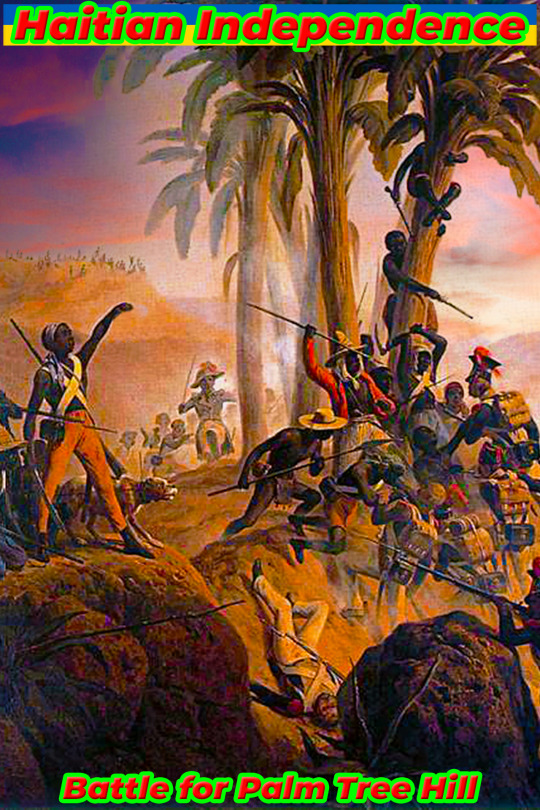
It's January 1st, ⛓️ Haitian Independence Day. France had ruled the colony of Saint-Domingue as part of its worldwide empire since 1659. However, in 1791, a group of enslaved Africans, inspired by the American and French Revolutions, began an epic struggle for freedom that culminated in victory and a declaration of independence on this day in 1804. The declaration proclaimed that the new republic would forever after be known by the same name it was known as before the Europeans had arrived – "Haiti," which means "High Land" in the Native American Taino language.
The Haitian Revolution is Haiti's defining moment. It was the largest slave uprising since Spartacus' unsuccessful revolt against the Romans in 72 BCE. Haiti's victory came as a total surprise and shock to the rest of the world and inspired countless other slave revolts throughout the Western Hemisphere. It also paved the way for the termination of the transatlantic slave trade. This victory was also the final nail in the coffin of Napoleon Bonaparte’s ambitions for a New World French Empire. He’d sold the Louisiana Territory to the United States the previous year in part to pay for the defeat of the revolt in Saint-Domingue. That was not to be. Haiti became the first independent state in Latin America and the first in the New World to be led by a person of color.
The victory over France put an end to Haiti's military fight for freedom, but not its political fight. The US and most European nations, including France, didn't immediately recognize Haiti's independence. France didn't officially do so until 1825. The US didn't do so until 1862. That doesn’t matter, though. All that matters is Haiti. The Haitians recognized their own independence on this day in 1804 and have continued to do so every day since. ☮️ Peace… Jamiese of Pixoplanet
#Jamiese#Pixoplanet#haitian independence day#haiti#haitian food#haitian#kompa#zouk#haitian kompa#haitian breakfast#griot festival#griot fest#haitian foods#griot#haitian revolution#mackandal#ayiti#haitian music#haitian pride#haitian businesses#ayiti cherie#haiti tourism#the haitian revolution#instagram#facebook#twitter#pinterest#tumblr#tiktok#youtube
35 notes
·
View notes
Text
#youtube#spotify#kompa gouyad#haiti#haitian#haitiankompa#kompa beat#haitien#instrumental kompa#haitian music
3 notes
·
View notes
Text
instagram
3 notes
·
View notes
Text

today's purple album of the day is: Haitian Folk Songs by Lolita Cuevas and Frantz Casseus!
#purple#purple aesthetic#purple albums#folk music#1950s#haiti#haitian music#frantz casseus#lolita cuevas#indigo purple
4 notes
·
View notes
Text
youtube
3 notes
·
View notes
Text

2 notes
·
View notes
Text
Drum roll... the track Autobus Nord (instrumental version) from my 1st album Anba Tonèl has been selected for the release of the new album by the legendary U.S. label Putumayo, on Caribbean Celebration, out today! A fine selection of 10 artists from Haiti, Martinique, Trinidad and elsewhere, available for download on iTunes and Bandcamp and streaming on Apple, Spotify, Pandora and other major platforms.
Thanks to the staff of the Putumayo team for this great opportunity!
Bandcamp: https://putumayo.bandcamp.com/album/caribbean-celebration
Website: https://www.putumayo.com/caribbean-celebration
Spotify: https://open.spotify.com/album/1bfMdCE2xh7ZAEwODmwYvi...
Apple: https://music.apple.com/.../caribbean.../1733945013
#culture#haitian music#martinique#guadeloupe#french west indies#traditional music#tradition#troubadour#world music#global music#canadian folk music#patrimoine#caribbean music#canadian artist#quebec#montreal#antilles
0 notes
Text

7 notes
·
View notes
Text
#haiti legends#Nou sou kont Anwo#praise and worship#praise the lord#souf pou ayiti#gregory Toussaint#mach mondyal pou ayiti#delly benson#mwen sou kont anwo#march international for Haiti#iamgabrisan#Haitian music
6 notes
·
View notes
Text
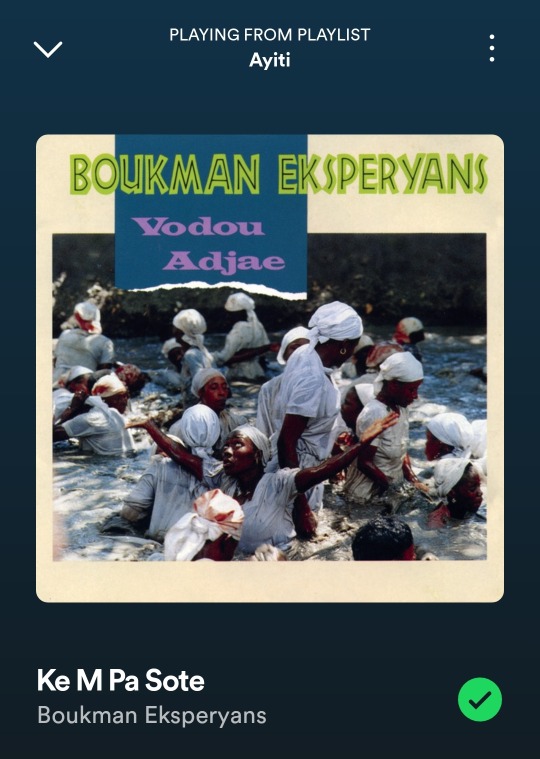
0 notes
Video
JESSIE WOO RELEM | HAITIAN MUSIC REACTION | 🦅 WR7DVIEWS PODCAST
#youtube#JESSIE WOO#RELEM#HAITIAN#HAITIAN MUSIC#HAITIAN MUSIC REACTION#TATISWR7D#WR7DVIEWS#WR7DVIEWS PODCAST
0 notes
